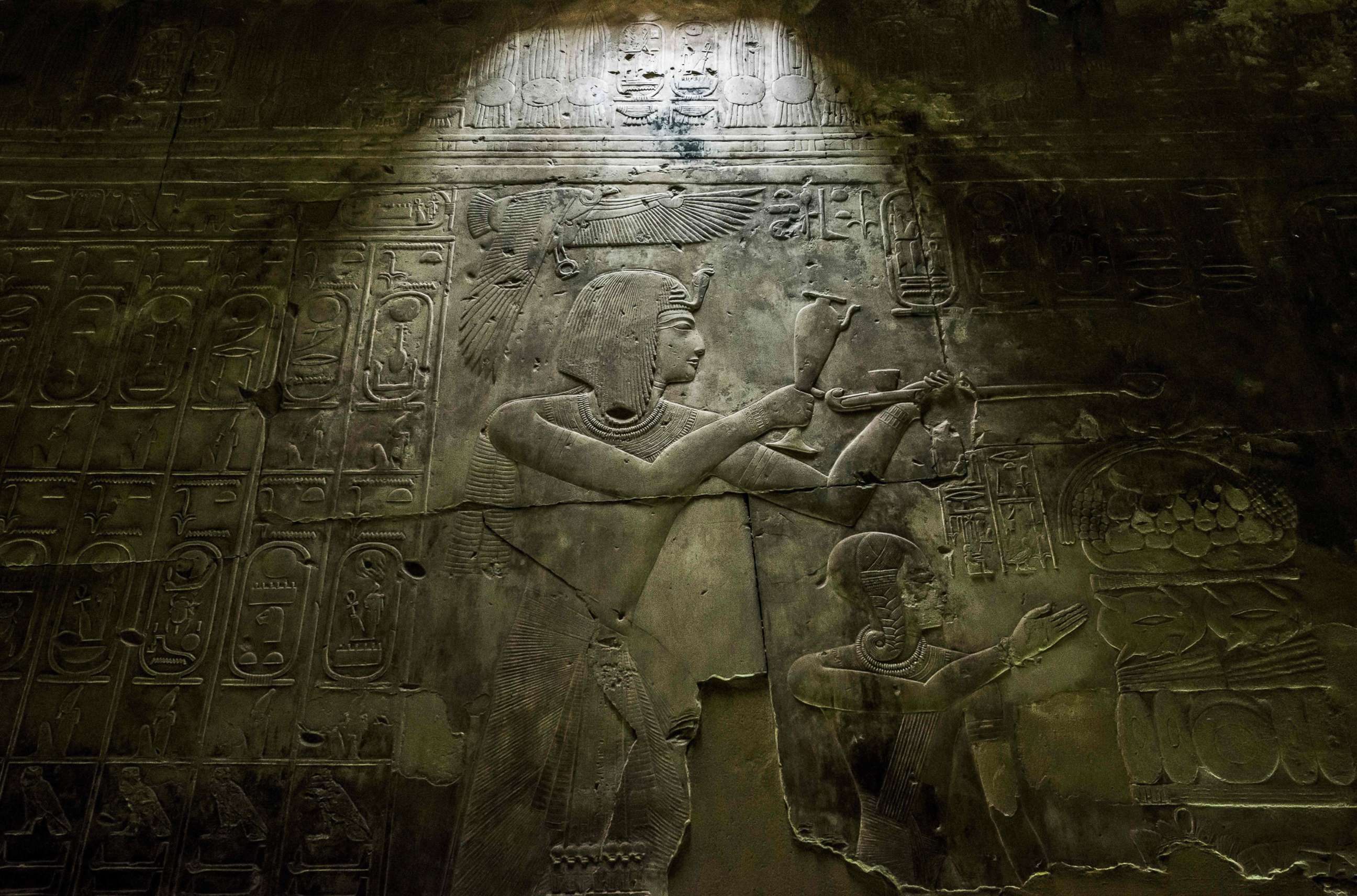2,200-year-old Egyptian temple discovered
The temple is believed to have belonged to Pharaoh Ptolemy IV.
Sanitation workers digging near the western bank of the Nile River in Egypt made an unexpected discovery this week: the remains of a 2,200-year-old temple.
So far, the corner of the temple and two portions of the wall have been uncovered. The sanitation project was put on hold to allow for archaeologists to try and preserve what remains of the temple.
The discovery was made on Sept. 29 in the village of Kom Shakau, in the Tama township in northern Sohag, according to a Facebook post by Egypt's Ministry of Antiquities.
The temple is believed to have belonged to Pharaoh Ptolemy IV, the fourth Pharaoh of Ptolemaic Egypt from 221 to 204 BC.

Archaeologists found inscriptions that read “Ptolemy IV” along the walls of the temple and imagery of animals and birds, according to the ministry.




